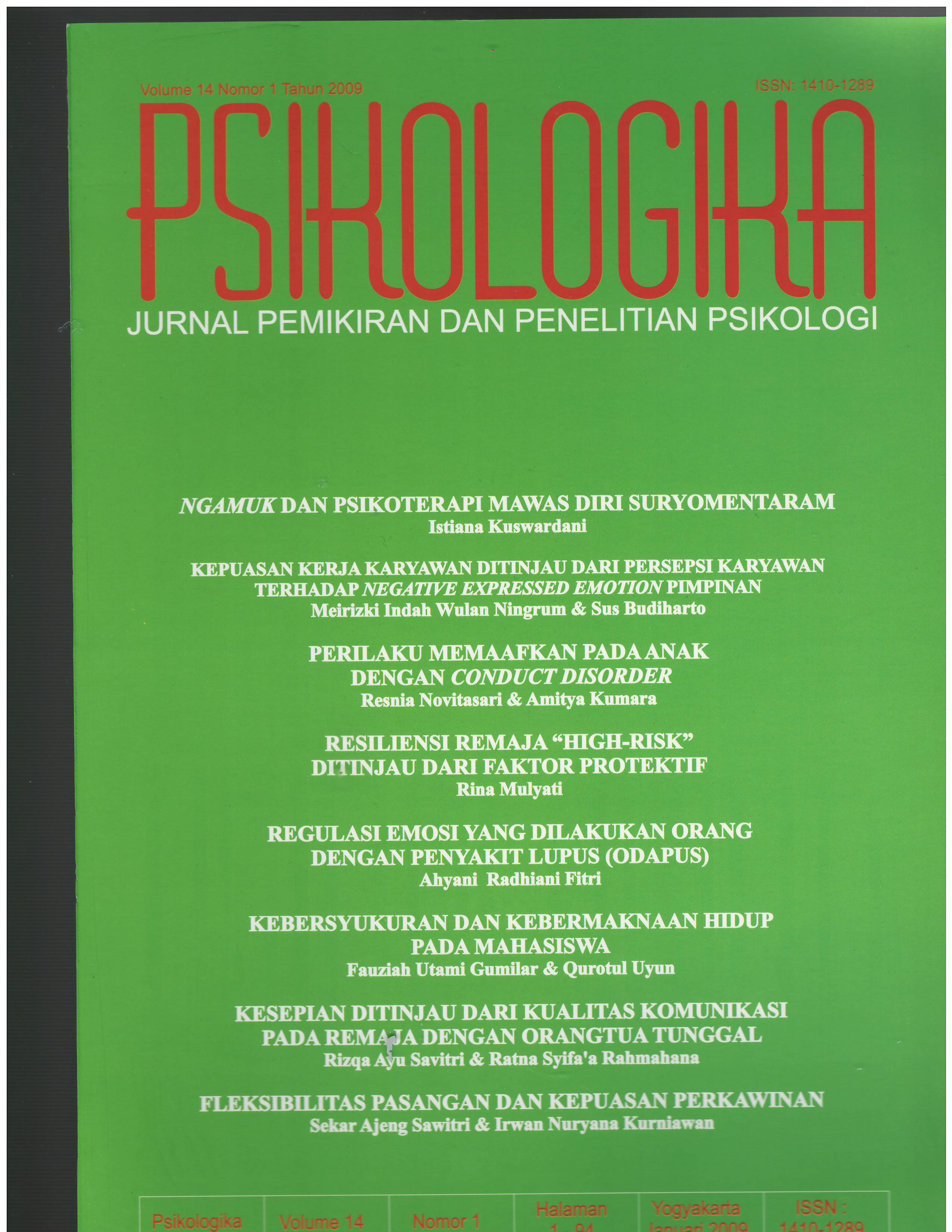Main Article Content
Abstract
The purpose of this research was to examine the relations between parent's communication quality and level of loneliness in their adolescence's children. The hypothesis was the higher the quality of parent's communication with their teen children, the less lonely they would be. The respondents were high School students with 14-20 years of age from single parents' family. Data collections were using Loneliness Scales (Weiss1994; Mustikasari, 2002) and Communication Quality Scale (Laswell & Laswell, 1987; Suwantoro, 1997). Data analyzes using statistical method with Product Moment Technique from Pearson. The parent's communication quality was found to be negatively correlated to teen's level of loneliness. The higher the quality of communication between parents with their teens children, the less lonely they would become (r =-0,712; p = 0,000). The quality of communication itself contributed 50,7% to the respondents' level of loneliness while 49,3% of other factors still unidentified and need further investigation.
Keywords: quality of communication, loneliness, single parent.
Keywords: quality of communication, loneliness, single parent.
Article Details
License
Authors who publish with this journal agree to the following terms:
- Authors retain copyright and grant the journal right of first publication with the work simultaneously licensed under a Creative Commons Attribution-ShareAlike 4.0 International License that allows others to share the work with an acknowledgment of the work's authorship and initial publication in this journal.
- Authors are able to enter into separate, additional contractual arrangements for the non-exclusive distribution of the journal's published version of the work (e.g., post it to an institutional repository or publish it in a book), with an acknowledgment of its initial publication in this journal.
- Authors are permitted and encouraged to post their work online (e.g., in institutional repositories or on their website) prior to and during the submission process, as it can lead to productive exchanges, as well as earlier and greater citation of published work (See The Effect of Open Access).




